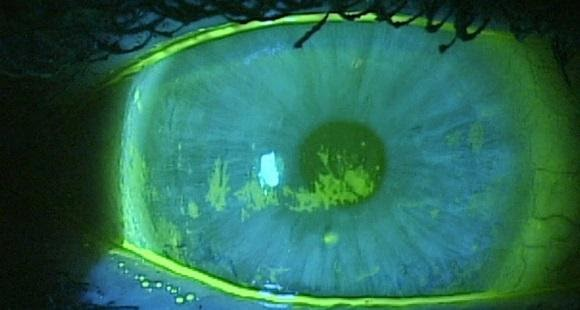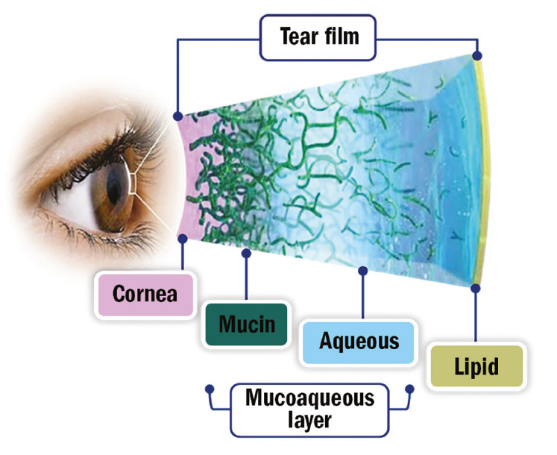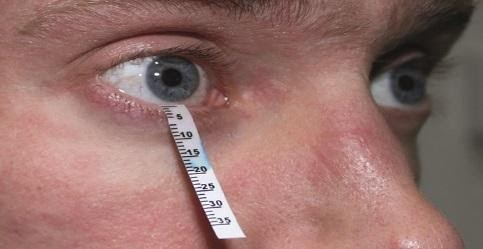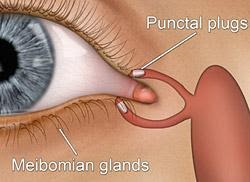To keep your eyes healthy, an adequate and consistent layer of tears on the surface of the eye is essential. Tears lubricate and wash away dust, debris and microorganisms.
Tears consist of 3 layers and each layer play an important role. Tear components are produced by different glands.
Oily/Lipid layer: Lubricates the eyelids & prevents evaporation of the water layer. It is produced by the Meibomian glands.
Water/Aqueous layer: Washes away debris and gives antibacterial function. It is produced by the lacrimal glands.
Mucous layer: Spreads the tears evenly over the surface of the eye. It is produced by goblet cells on the conjunctiva.
Causes of Dry eyes can be broadly categorized into:
-
Inadequate tear production
-
Poor-quality tears
Also, if your Meibomian glands are blocked or inflamed, the condition disrupts the production of the oily layer of the tears. Thus, causing tears to evaporate too quickly and dry eyes. This condition is known as Meibomian Gland Dysfunction (MGD) or Meibomitis.
Dry eyes can cause inflammation and sometimes damage the surface of the eyes if left untreated.
Signs & Symptoms of Dry Eyes
-
Burning or stinging sensation
-
Itchy eyes
-
Scratchiness or grittiness
-
Sensitive to bright light
-
Fatigue eyes
-
Red eyes
-
Blurred vision
-
Excessive tearing
-
Crusting of the eyelids
-
Foreign body sensation
Risk Factors Associated with Dry Eyes
-
Aging. Dry eyes can occur at any age but is more common in those 50 years and older.
-
Environment. Air conditioning, ceiling fans, exposure to smoke, wind, heat and haze increases dry eyes risk.
-
Contact lens wear. Contact lenses evaporate tears from the eyes.
-
Computer use. When using computers, smartphones and other portable digital devices, we tend to blink less, which leads to greater tear evaporation.
-
Medications. Certain medications such as antihistamines, antidepressants and birth control pills increase the risk of dry eye syndrome.
-
Menopause. Post-menopausal women have higher risk of dry eyes.
-
Medical Conditions. Certain medical conditions such as Rheumatoid arthritis, Sjogren syndrome and Thyroid-associated disease may contribute to Dry Eyes.
-
Eyelid problems. Incomplete closure of eyelids when blinking and sleeping can cause dry eyes.
How is Dry Eye Diagnosed?
Your Eye doctor will ask you about your medical conditions, medications and any usage of contact lenses.
They will then examine the tear film through a special microscope called the slit lamp. They may also use eye drops with dye to identify any dry spots.
Tear production is tested using a strip of filter paper called Schirmer’s strip. It is inserted in the lower lid for about 5 minutes. This will determine whether your tear glands are producing enough tears to maintain eye moisture.
View Images

SPK or corneal staining is a clinical sign of moderate to severe dryness.
Previous
Next
Treatment
In most cases, the use of artificial tears and minor behavioural and environmental modifications can significantly reduce dry eye symptoms. Frequent breaks between computers or electronic gadgets and air-humidifier amongst others greatly help.
Warm compress over the eyelid also helps to regulate the tears production.
View Images
If artificial tears do not relieve the symptoms, your Eye doctor may recommend other forms of treatment.
Occlusion Therapy
In severe and persistent dry eye symptoms, your Eye doctor may suggest a permanent closure of the tear ducts, also known as punctal occlusion.
If your dry eyes are due to eyelid problems, the Eye Doctor may recommend other kinds of surgery.
Self-Care
-
Blink more often when reading and using the computer
-
Wear sunglasses when outdoor to reduce exposure to dust, wind and sun
-
Eat foods that are high in fatty acids
-
Reduce contact lens wear
-
Remove eye makeup thoroughly and clean your eyelids
Meet our Specialist
Dr Ainur Rahman Dato Setia Dr Anuar Masduki
Designation
Consultant Ophthalmologist and Corneal Surgeon








